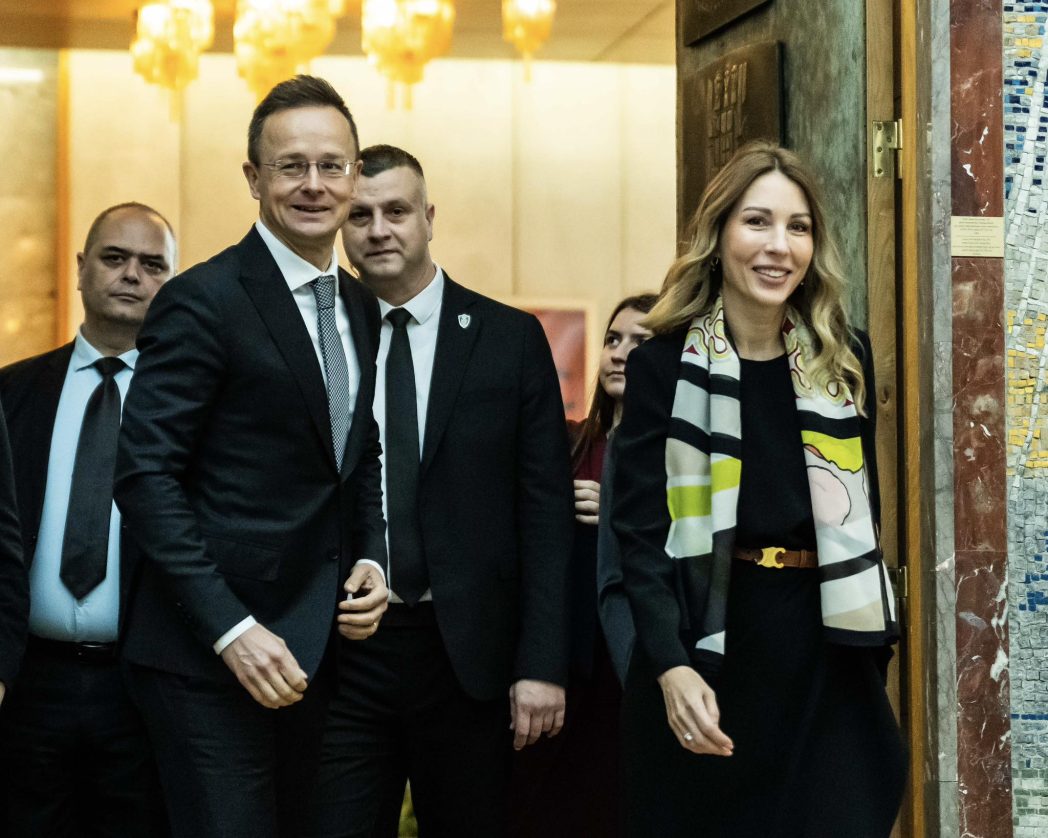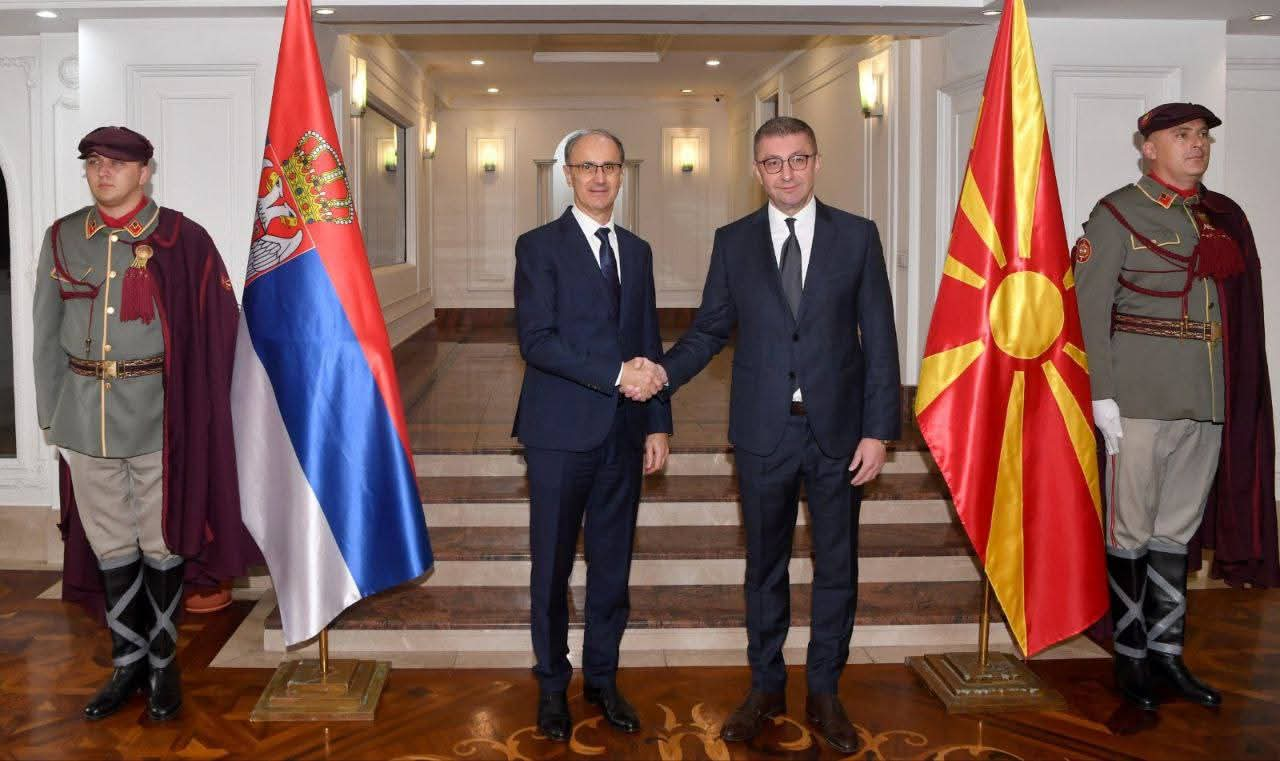Serbian Prime Minister Djuro Macut met his North Macedonian counterpart Hristijan Mickoski in Skopje on Friday to discuss strengthening bilateral relations, economic cooperation and regional stability, officials said, as an ethnic Albanian party accused the government in Skopje of drifting under Belgrade’s influence.
Macut and Mickoski emphasized boosting trade, joint energy projects and easing the movement of people and goods, Serbia’s government said in a statement. The two agreed to establish a “fast communication line” between their governments to deepen cooperation.
The Serbian leader voiced support for reform efforts in North Macedonia, while Mickoski described Serbia as “a sincere partner and friend” with whom Skopje shares a vision of a stable and prosperous Balkans. Both sides said stronger ties would contribute to regional security and the European perspective of the Western Balkans.
During his visit, Macut also met Deputy Prime Minister Ivan Stoilkovic, a pro-Serbian politician in Mickoski’s coalition government.
But the Democratic Union for Integration (DUI), the largest ethnic Albanian party in North Macedonia and now in opposition, denounced the visit as a sign the country was slipping into what it called a “third Serbian republic.”
In a strongly worded statement, DUI said the agreements reached were being presented as economic cooperation but in reality marked “a full state capture by Belgrade, with the blessing of the VLEN coalition,” referring to the alliance backing Mickoski.
The party listed recent developments it sees as evidence of growing Serbian influence, including Stoilkovic’s appointment to oversee implementation of the Ohrid Framework Agreement, state honors for Bosnian Serb leader Milorad Dodik, Serbian-funded church projects in Albanian-majority areas, and the entry of Serbia’s Alta Banka into North Macedonia’s financial sector.
“Questions remain about what was discussed in these meetings and why it is being kept as a state secret,” DUI said, vowing to defend the Ohrid Agreement, the Albanian language and national interests.
North Macedonia, a NATO member, has been negotiating EU membership but has faced internal political divisions over its direction, with Albanian parties warning against what they see as growing nationalist and pro-Serbian policies under Mickoski.



